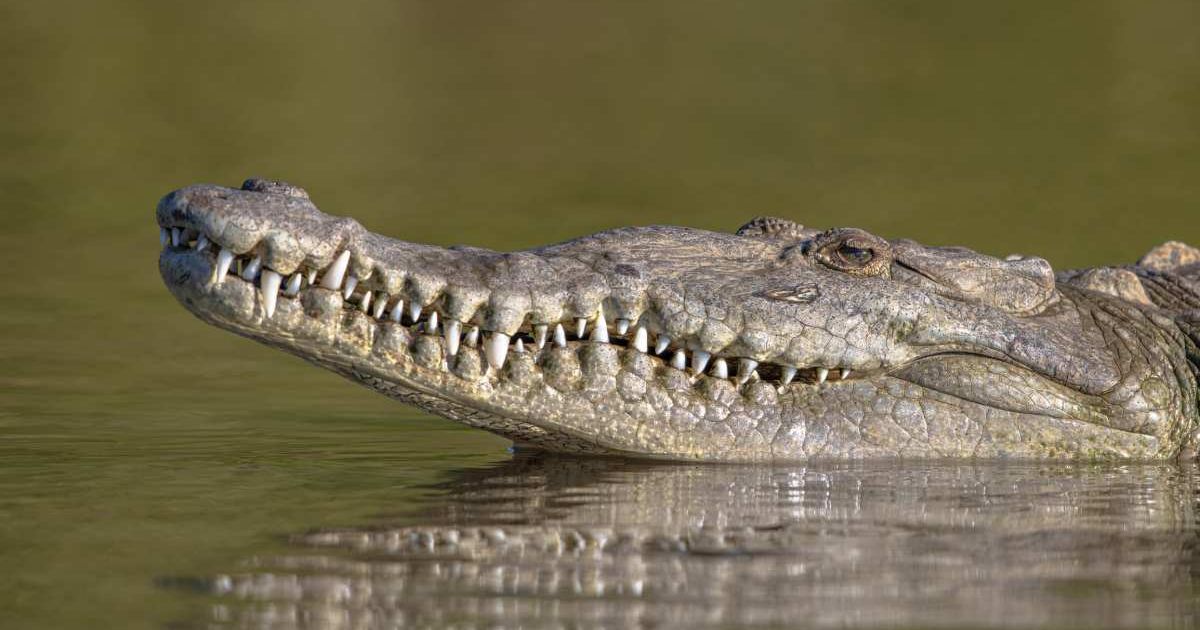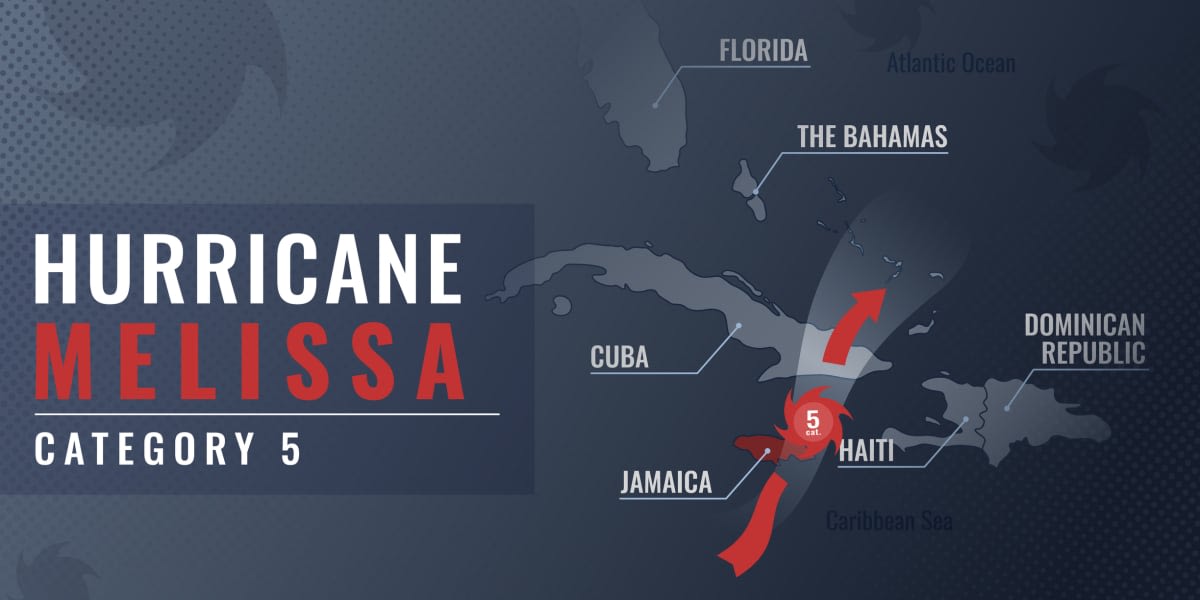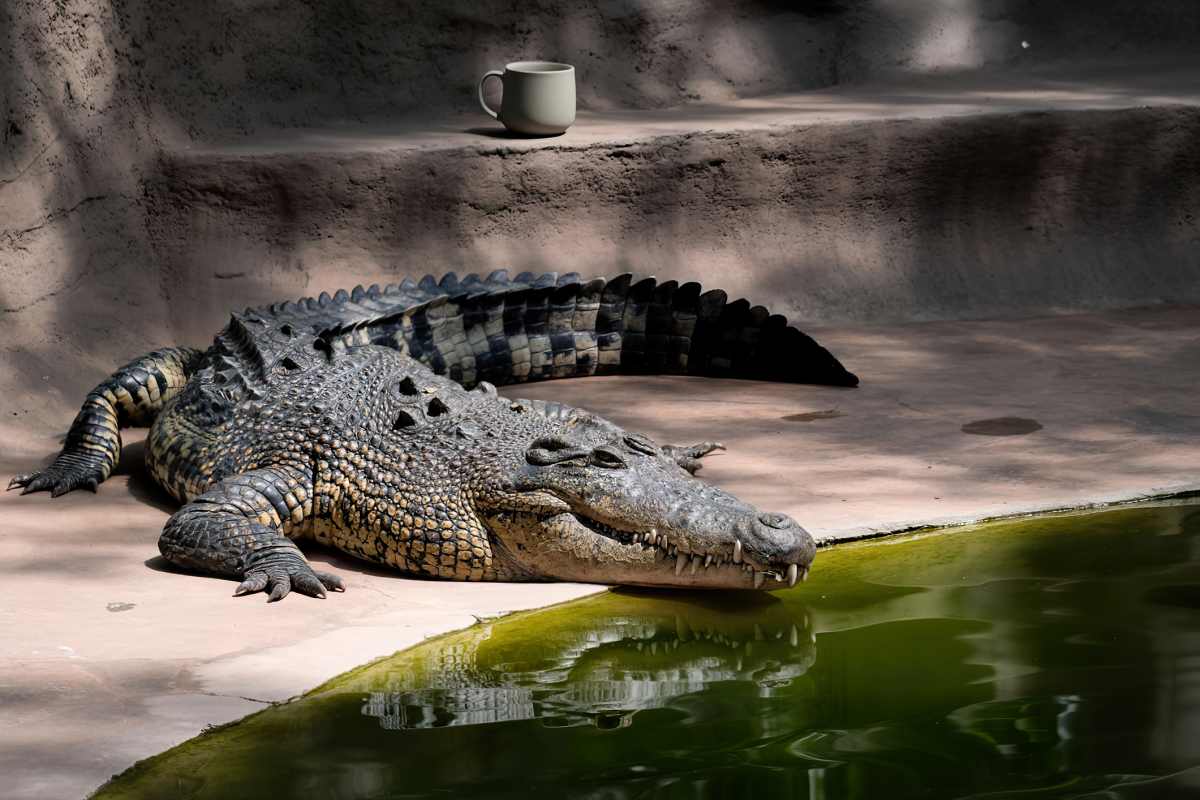Officials Warn Jamaicans to Watch Out for Crocodiles as Hurricane Melissa Displaces the Creatures

Typically, the crocs residing in the brackish, saltwater wetlands on Jamaica’s southern coast are shy and reclusive. They don’t bother to pester humans unless they are disturbed. While most crocodiles around the world engage in “death rolls” to deceive the prey and cut up pieces of their flesh, these Jamaican reptiles don’t stand in the way of humans, per JIS. However, lately, as the battering winds of Hurricane Melissa are violently thrashing Jamaica, the water levels in certain areas could rise, as a result of which, crocodiles can get displaced. In a public announcement, South East Regional Health Authority (@theserhajm) warned residents of Jamaica to remain “vigilant” as they might spot one of these yellow-bellied reptiles slithering in front of their house.

Experts and meteorologists have declared Melissa as the worst storm ever to strike the island nation and one of the most powerful hurricanes on record. At about 5 am on October 27, Melissa was observed to be spinning about 130 miles south-southwest of Kingston, Jamaica, scurrying towards the west at just 3 miles per hour. On October 28, it started strengthening again into a Category-4 storm, speeding at 130 miles per hour towards Cuba and then the Bahamas. Recently, it made a tempestuous landfall on Jamaica’s coast, with winds zipping across the island at more than 185 miles per hour.

In a warning, the U.S. National Hurricane Center cautioned Jamaica’s residents that Melissa could dump up to 40 inches of rain, triggering life-threatening floods and landslides. In the latest update, the SERHA has given an additional warning, cautioning residents of St. Andrew, Kingston, St. Catherine, and St. Thomas about the crocodiles that might crawl out of the waters and move towards residential streets due to rising sea levels and the deluge of floodwaters.

Crocodiles are usually found in a trail spanning from St. Thomas to Westmoreland, which is exactly the same region where Melissa is expected to strike most vigorously. “Rising water levels in rivers, gullies, and swamps could cause crocodiles to move into residential areas in search of dry ground,” said SERHA, and added, “Residents living near these areas are therefore advised to remain vigilant and avoid flood waters.” Reporters from BOJTV Live visited places like Allegata Pond, Treasure Beach, and Black River. They spotted a crocodile couple propelling out of the Black River waters, seemingly headed towards the town.
Meanwhile, Melissa continues to unleash savagery upon Jamaica, both people and infrastructure. Latest photos captured in Jamaica, shared by The Guardian, display Santiago de Cuba residents rushing out of the town with suitcases and umbrellas, to flee to a safe place before they fall victim to Melissa’s passage. Kingston is witnessing flattened trees, dismantled buildings, collapsing structures, and ripped palm fronds littering the roadways. One woman told the BBC, "There is water coming in through the roof of my house. I am not okay."

“Do not gamble with Melissa. It’s not a safe bet,” warned Desmond McKenzie, Jamaica’s Disaster Risk Management Council deputy chair, in conversation with Breaking Belize News. Cuban President Miguel Diaz-Canel told BBC News, "Melissa will arrive with force, and there's great concern about what it could destroy in its wake.” Meanwhile, if you are a resident of Jamaica and you have spotted a crocodile scurrying somewhere around, you can report the sighting to the National Environment and Planning Agency.
More on Green Matters
Hurricane Melissa’s Speed Has Doubled in Just 24 Hours — Thanks to Warming Atlantic Ocean
Climate Change Is Making Hurricane Melissa Stronger — Jamaica Braces for Severe Impact
Two Hurricanes in the Southwest Are Coming Close to Each Other — but Will They Collide?